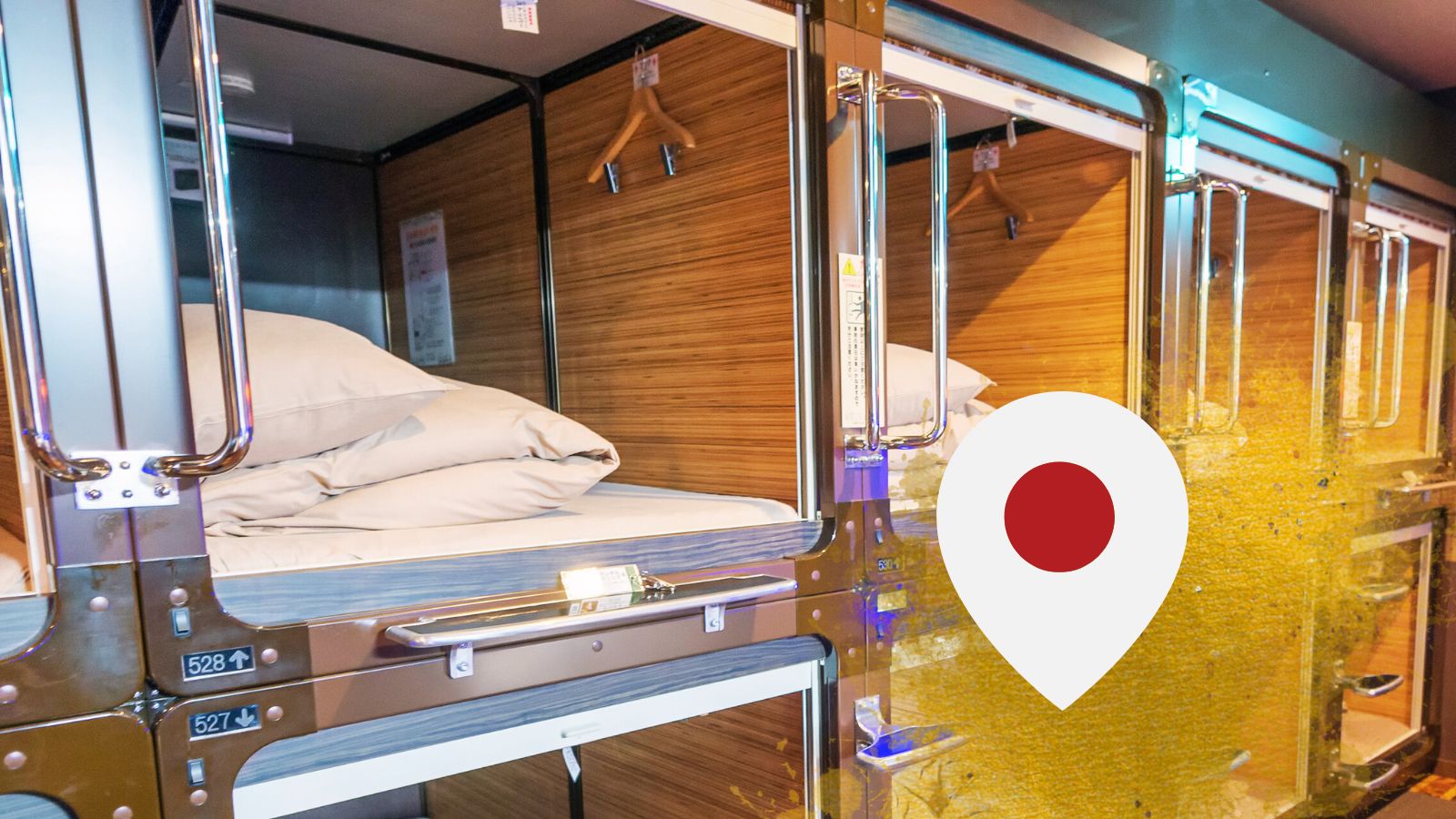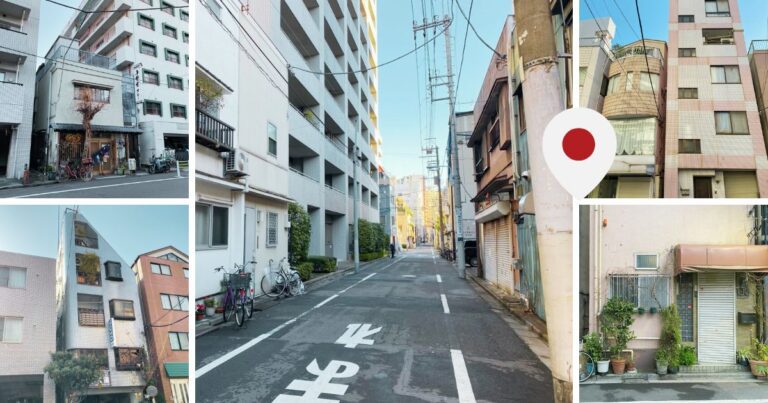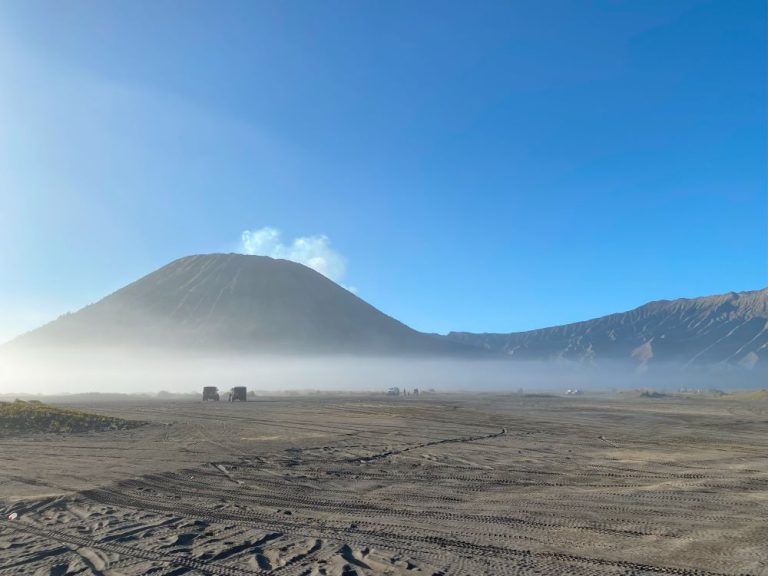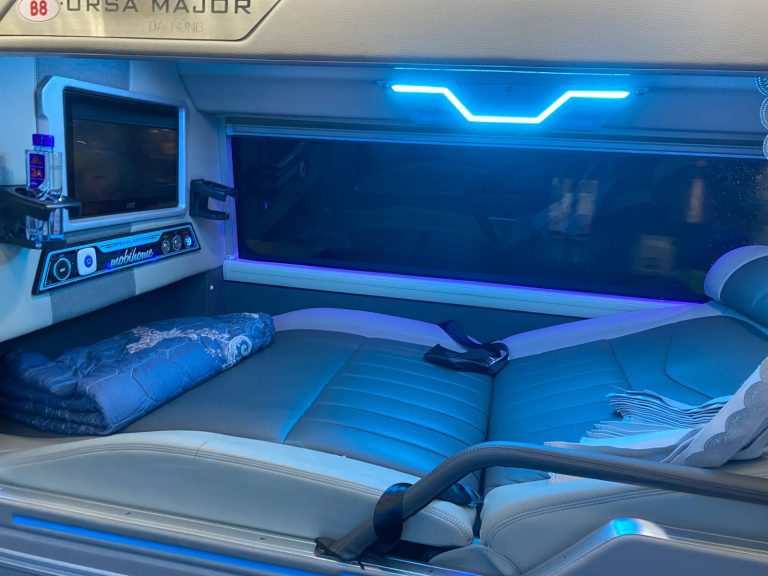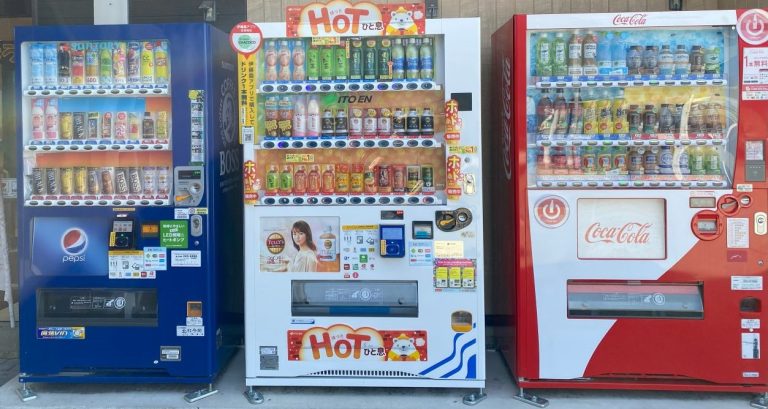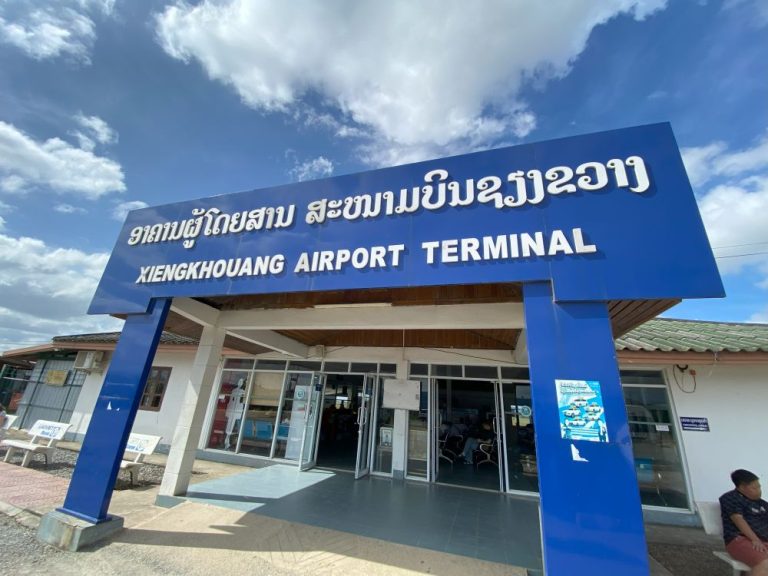What’s a Capsule Hotel & Why You Should Try One
Picture this: you’re in the heart of Tokyo, and instead of paying $200 USD/night for a tiny hotel room, you’re sleeping in what looks like a first-class space pod for a fraction of the price.
Welcome to the world of capsule hotels, one of Japan’s most clever answers to expensive city accommodation.
If you’ve never heard of capsule hotels before, they might sound a bit strange. After all, who wants to sleep in something that looks like a little too much like a storage cabinet? (Especially if you’re claustrophobic!)
But here’s the thing: these spaces are actually a brilliant solution for solo travelers who want privacy without the premium price tag of a hotel room.
Think of it as the perfect middle ground between a hostel and a hotel. You get your own private space to sleep (no climbing over strangers’ backpacks or listening to someone snore in the bunk above you), access to surprisingly nice amenities (ever used a Japanese beauty product? They’re serious about their toiletries), and usually a prime location near major train stations or attractions.
The best part? While regular hotel rooms in Japanese cities can make your wallet weep, capsule hotels let you stay right in the middle of the action without blowing your entire travel budget on accommodation. They’re perfect for travelers who plan to spend their days exploring and just need a comfortable, secure place to sleep at night.
Sure, they’re not for everyone-– if you need space to do your morning yoga routine or want to host an impromptu party in your room, you might want to look elsewhere.
But if you’re curious about trying something uniquely Japanese while saving money for more important things (like sampling every ramen shop in the neighborhood), a capsule hotel might be exactly what you’re looking for.
Just Gone Wandering is supported by readers! This post contains affiliate links. If you click on a link and buy something, I get a small percentage at no extra cost to you. Your support helps keep this blog running— thank you! Read full disclosure here.
Japan Travel Essentials
The absolute must-haves for your trip!
Solo traveling to Japan? Join our Facebook group and get advice, travel tips, and more!
A Brief History of Capsule Hotels
Capsule hotels didn’t just pop up randomly. They were a response to some pretty specific needs!
The concept was born in Osaka, Japan in 1979, with the opening of the very first capsule hotel, Capsule Inn Osaka. This wasn’t just about saving space, but also serving the needs of busy professionals and penny-pinching travelers.
Japan’s compact urban centers made this a no-brainer, and the initial design provided basic sleeping pods stacked like lockers to maximize space.
Fast forward to today, and capsule hotels are an icon of Japanese culture. Sure, they’ve gone through some upgrades (some even with TVs and luxury bedding these days), but their essence remains the same: affordable, efficient, and a no-fuss place to lay your head.
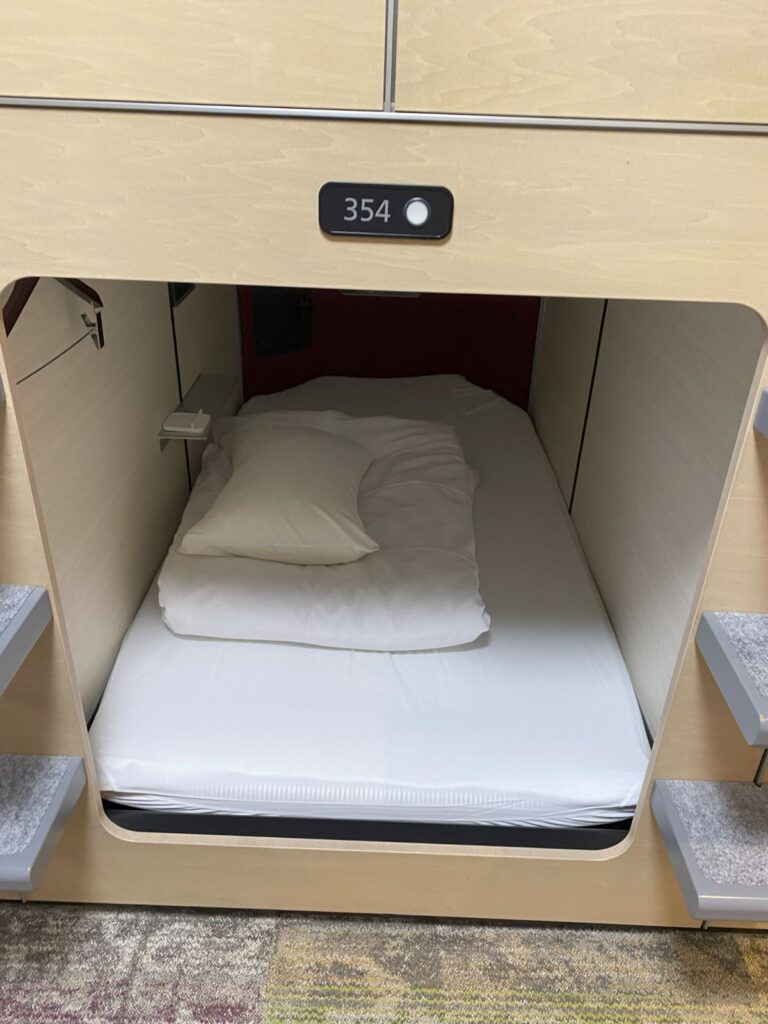
Where Can You Find Capsule Hotels?
Urban hubs like Tokyo, Osaka, and Kyoto have tons of capsule hotels, basically one on every corner. You’ll especially find them near train stations (perfect for when you’ve got an early morning Shinkansen to catch), in business districts, and even tucked into quieter nooks of tourist hotspots.
As for where to book a capsule hotel: online is the best way.
Use websites like Booking.com, Hostelworld and Agoda. You’ll pay a bit more compared to the local online rates (Japanese travelers use Rakuten, for example) but it’s easier for tourists with international credit cards to use an international website.
I highly recommend booking ahead as far as possible. Capsule hotels are popular with locals and international tourists, and they get booked out quickly. Especially if you’re traveling during a high tourist season, like cherry blossom season or the summer, you’ll want to snag your pod as soon as you can.
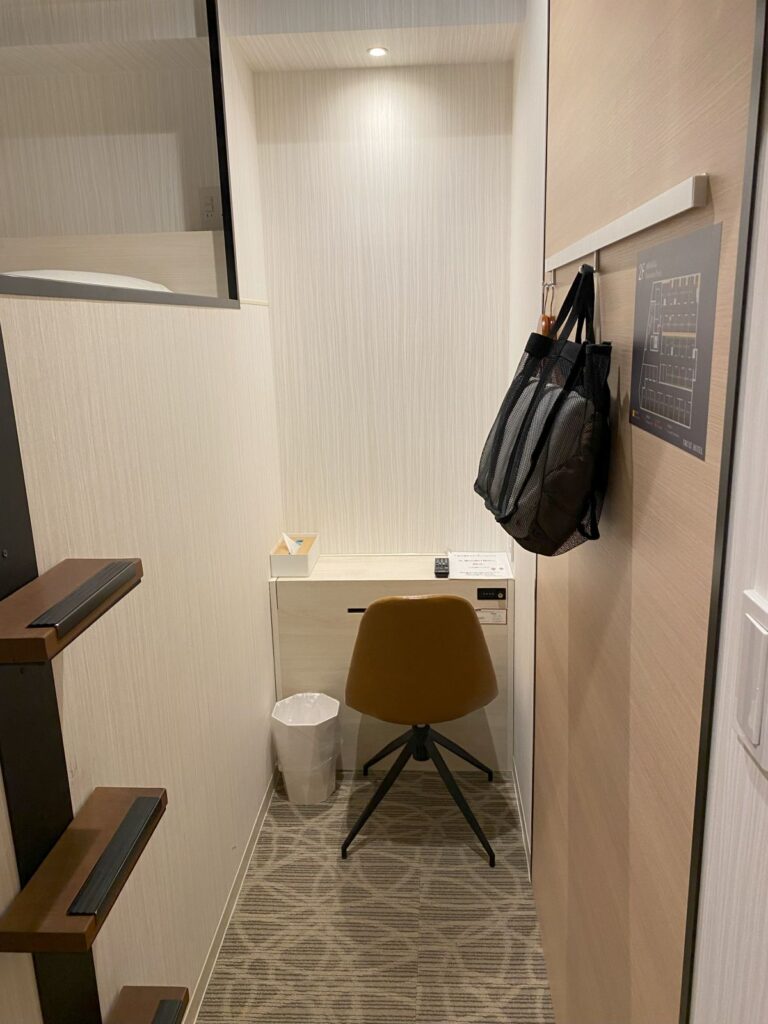
What’s it Really Like Staying in a Capsule Hotel?
If you’ve never stayed in a capsule hotel before, the whole concept probably seems a bit wild. I mean, sleeping in what’s essentially a high-tech drawer?
But I promise, it’s not as weird as it sounds. I’ve stayed at several capsule hotels during my visits to Japan, and I’ve come to love them! I’ll walk you through exactly what to expect during your own stay.
Arriving at Your Capsule Hotel
First things first: checking in is probably different from what you’re used to. Unlike regular hotels where you can just head up to your room after getting your key, capsule hotels have a whole process– but don’t worry, it’s not complicated.
When you arrive, you’ll need your passport (this is a legal requirement in Japan), and it’s good to have your booking confirmation handy. The staff might not speak much English, but most capsule hotels are well-prepared for international guests with instruction cards or picture guides.
Here’s where things start getting different: you’ll get three keys instead of one. One is for your shoe locker (yep, you’ll need to take off your shoes right away– this is Japan after all!), one for your personal locker (where you keep your stuff) and one for the room itself.
This is important because your capsule is literally just for sleeping. Everything else you own needs to go in your locker.
Where You Keep Your Stuff
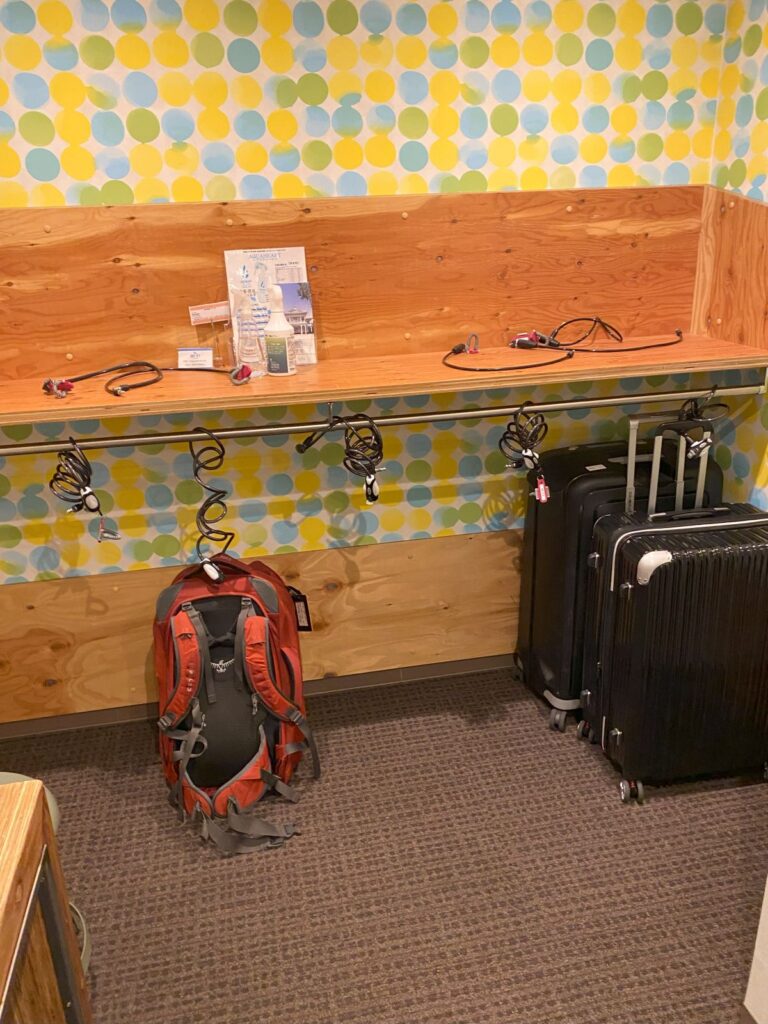
Every capsule hotel is set up differently, but generally you’ll have an area separate from your bed where you’re expected to keep your stuff. Some capsule hotels have an entirely different room where you put your things, including your suitcase– this helps cut down on noise in the dorm area.
You’ll generally get a locker. Most lockers are big enough to fit a small backpack, but if you have anything larger than, say, 30l (or a suitcase), you’re expected to keep it outside of the locker. Usually you’ll have a lock you can wrap around the handle to make sure nobody walks off with your luggage.
You can keep your phone, a charging cable, night-time stuff in the pod with you. I recommend bringing a tote bag (or picking up a cute one from Daiso) and using that to contain your stuff. You’ll want to move everything out of your pod into your locker during the day, as the staff will switch out your bedding and bring you a new set of pajamas.
Your Pod: Home Sweet Home (Kind Of)
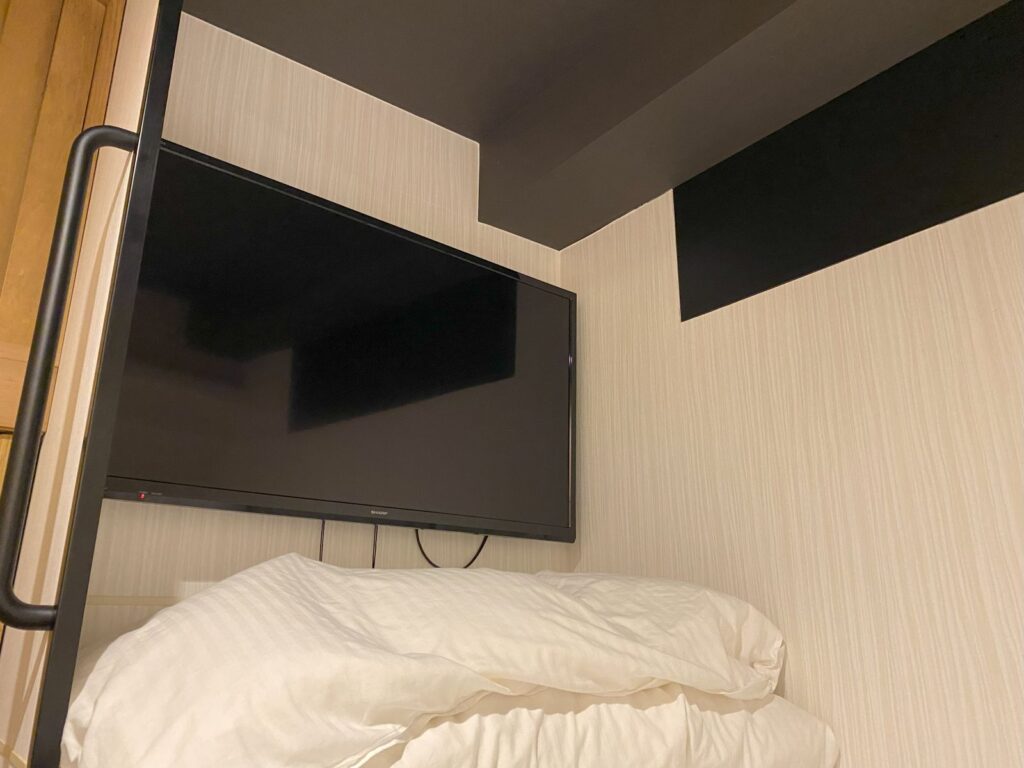
Now, about that capsule: it’s probably bigger than you’re imagining.
Most people can sit up comfortably without hitting their head, and the length is fine unless you’re significantly taller than average. Inside, you’ll usually find a power outlet (thank goodness), a light you can control, and sometimes even a tiny TV or radio.
But here’s the thing: your capsule is for sleeping only.
This isn’t like a hostel bunk where you can hang out and read or watch videos on your phone all day. Most capsule hotels actually close the sleeping areas for cleaning during the day (usually between 10 AM and 4 PM), and you’ll need to be out of your pod during these hours.
The Bathroom Situation (And All Those Free Amenities!)
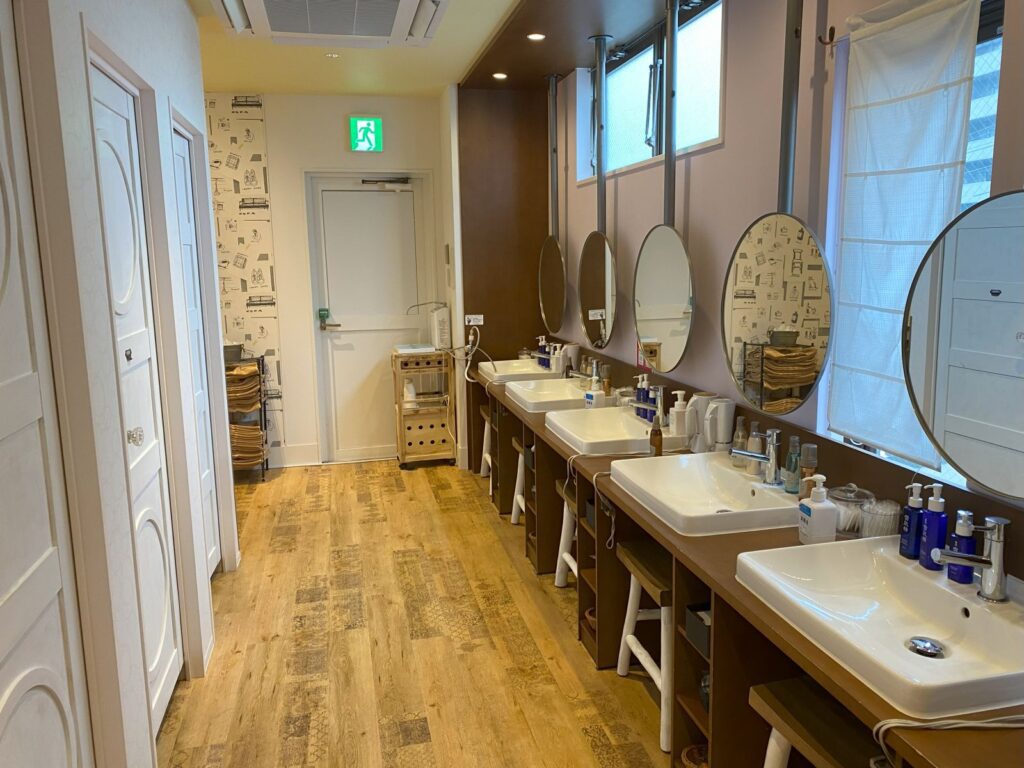
If you’ve stayed in hostels before, this part will feel familiar.
The bathrooms are shared, but they’re usually way nicer than what you’d find in a typical hostel. Think spa-like shower rooms with everything you could need provided: shampoo, conditioner, body wash, face wash, and usually even fancy stuff like night cream or facial toners.
Forgot your toothbrush? No problem– most places provide disposable ones along with toothpaste, razors, and hair brushes. Just check the neat little baskets or amenity corners they set up in the bathroom areas.
The amenities don’t stop at toiletries either. Most capsule hotels provide hair dryers, straightening irons, and even face mirrors in dedicated grooming areas. This is why many travelers can get away with packing super light– you really don’t need to bring much of your own bathroom stuff at all.
The Whole Language Thing
Let’s talk about the elephant in the room: the language barrier.
Yes, most staff will have limited English.
No, this shouldn’t stop you from staying in a capsule hotel. These places are used to international guests, and they’ve figured out ways to make things work.
Most important signs and instructions will be in English, or at least have pictures. For everything else, a smile and basic manners go a long way. Learn “sumimasen” (excuse me/sorry) and “arigatou” (thank you), and you’ll be surprised how far that gets you.
The Social Vibe (Or Lack Thereof)
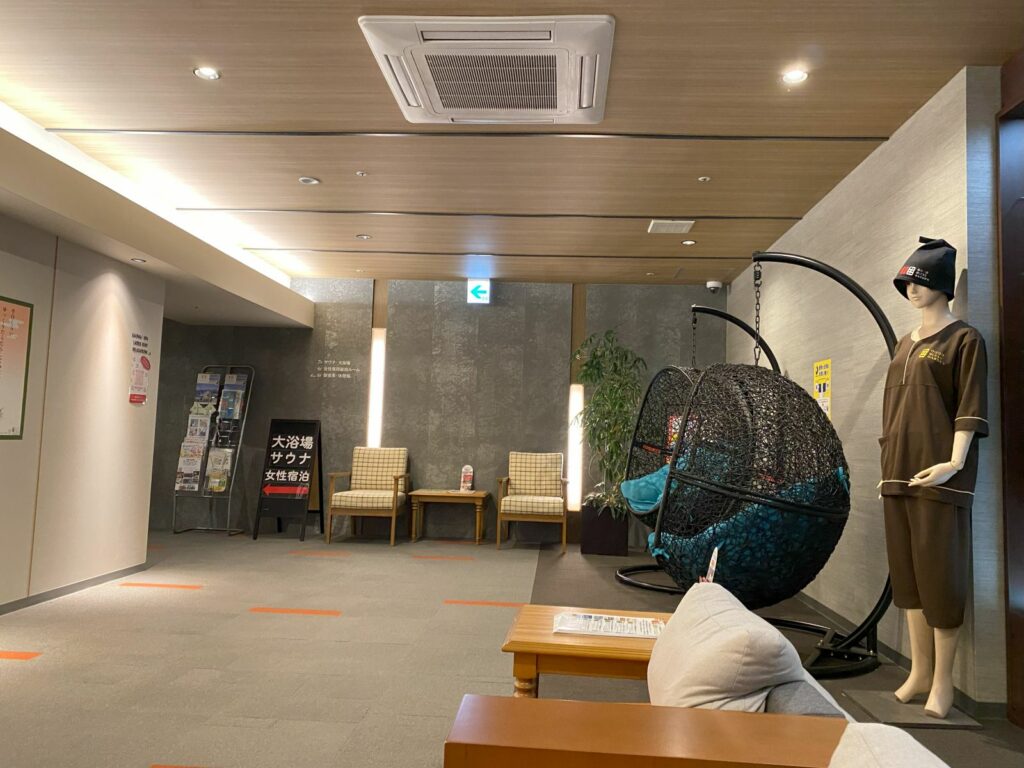
If you’re coming from staying in hostels, this might be the biggest culture shock: capsule hotels aren’t social spaces.
While there are common areas, people generally keep to themselves. It’s not rude– it’s just the culture. Lots of business people use capsule hotels as a place to stay, and they aren’t necessarily interested in talking to tourists.
This is perfect if you’re an introvert or just need a break from the constant socializing of hostel life, but if you’re looking to meet people, you might want to look elsewhere.
A Typical Day in a Capsule Hotel (And All The Little Perks)
Let me walk you through what a typical day looks like, because it’s pretty different from a regular hotel stay:
Morning
You’ll probably wake up early (these places tend to be quiet at night but come alive around 7 AM). Head to your locker to grab your clothes and toiletries, then hit the common areas. Most capsule hotels provide free coffee or tea in the morning, and some even have breakfast setups with traditional Japanese offerings like miso soup, rice, salmon and pickled veg.
The bathroom areas will be busy– early birds definitely catch the less crowded showers– but you’ve got all those free toiletries at your disposal, plus hair dryers and whatever else you need to get ready for the day.
During the day
Unlike regular hotels, you won’t have access to your pod, but most places offer free luggage storage if you’re checking out.
The common areas usually have comfortable seating, free Wi-Fi, and sometimes even work spaces if you need to catch up on emails. Many places also have vending machines stocked with drinks and snacks (usually cheaper than street prices), and microwaves if you want to heat up a convenience store meal.
Evening
Coming back, you’ll store your stuff in your locker and get ready for the night shift.
The hotel provides fresh pajamas (and they’re surprisingly comfortable!), slippers for walking around, and often extras like eye masks and earplugs. Some fancy places even have mobile phone chargers you can borrow.
Pro tip: evening showers tend to be less crowded than morning ones, and you might even find additional amenities like face masks or bath salts put out in the evening.
The Million-Dollar Question: Is It Comfortable?
Honestly? Yes, but in a different way than you might expect.
The beds are usually quite comfortable, and you have your own private space to sleep. But it IS more contained than a regular hotel. You can’t spread out all your stuff or lounge around in your pajamas all day.
Honestly, though, that’s kind of the point. Capsule hotels work best when you embrace what they are: a clever, efficient, and uniquely Japanese solution to expensive hotel rooms. They’re perfect for travelers who plan to spend their days exploring and just need a clean, safe, comfortable place to sleep.
If you go in expecting a regular hotel room, you might be disappointed. But if you approach it as an experience— one that’s going to save you money and give you a glimpse into a fascinating aspect of Japanese culture– you’re likely to come away with a pretty cool story to tell.
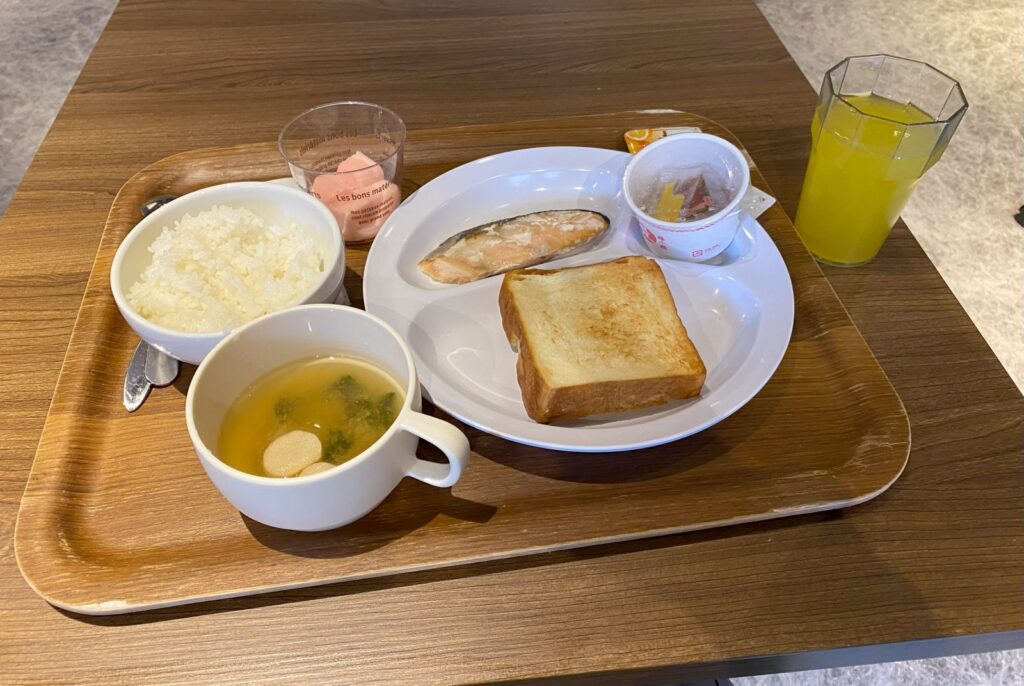
Let’s Talk Money: Capsule Hotel Price Guide
Now that you know what it’s actually like to stay in a capsule hotel, you’re probably wondering about the cost. One of the best things about capsule hotels is how they manage to offer so many amenities while keeping prices surprisingly reasonable.
This is especially true if you’re planning to stay in expensive cities like Tokyo, where regular hotel prices can make your wallet cry. Let’s break down exactly what you can expect to pay, and more importantly, what you get for your money at different price points.
Price Tiers
Budget Capsules: ¥2,500-4,000 ($20-30) per night
These are your basic, no-frills capsules. You’ll get a clean pod with a comfortable bed, shared bathrooms, and free Wi-Fi. Perfect for the practical traveler who just needs a place to crash. Found mostly near train stations and business districts.
Mid-Range Capsules: ¥4,000-6,000 ($30-45) per night
A step up gets you premium amenities like high-end toiletries, better quality bedding, and often a better location. Many mid-range capsules include extras like pajamas, slippers, and dedicated working spaces. You might even score a TV in your pod.
Luxury Capsules: ¥6,000-10,000 ($45-75) per night
Yes, luxury capsules exist! These often feature larger pods, premium mattresses, built-in entertainment systems, and spa-like shared facilities. Some even offer private shower rooms and co-working spaces with barista coffee.
Capsules Compared to Other Accommodation
So how do these prices stack up against other options in Japan?
Let’s look at what you’d pay for different types of accommodation in major cities. This is especially important in places like Tokyo, where location can make a huge difference in your daily sightseeing plans (and your budget). After all, saving money on a hotel that’s hours from everything you want to see isn’t really saving at all!
vs. Budget Hotels
A basic business hotel in central Tokyo (areas like Shinjuku or Shibuya) starts around ¥8,000 ($60) per night. While you get a private room, it’s often barely bigger than a capsule hotel’s shared space plus pod.
The real savings? Capsule hotels in the same areas often cost half as much.
vs. Hostels
Tokyo hostels range from ¥3,000-4,500 ($22-33) for a dorm bed (or MORE). While similar in price to capsules, you’re trading privacy for social atmosphere. Capsules give you your own space, and if you’re particularly introverted then you’d definitely want to avoid hostels.
vs. Business Hotels
Basic business hotels in Tokyo run ¥10,000-15,000 ($75-110) per night in central areas. While they offer private rooms, capsule hotels often provide similar or better amenities at less than half the price. Plus, many capsule hotels are in the same prime locations near major stations.
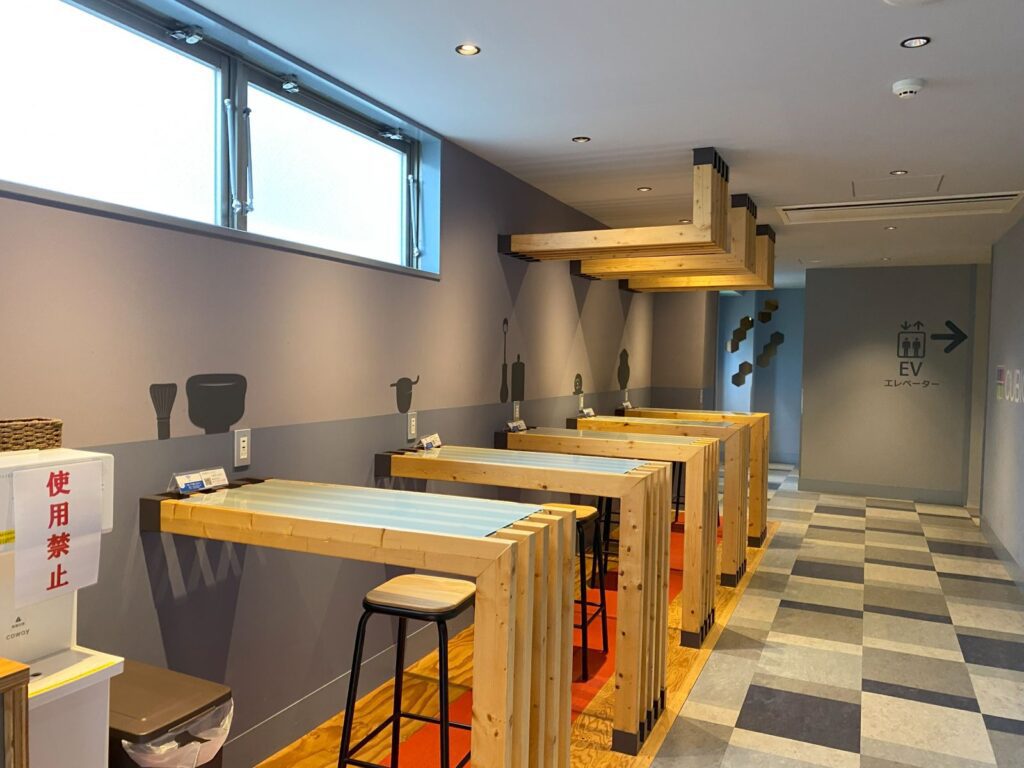
Should You Stay in a Capsule Hotel?
After reading all about capsule hotels, you might be wondering if they’re right for your Japan trip.
Here’s what I think: if you’re a solo traveler who values both your budget and your privacy, capsule hotels are absolutely worth trying at least once.
Yes, they’re different from what you might be used to. Yes, there’s a bit of a learning curve with the lockers and shared spaces. And yes, you’ll need to be okay with sleeping in what’s essentially a high-tech pod. But that’s part of what makes them special! They’re a uniquely Japanese solution to expensive city accommodation, and they work surprisingly well.
Think about it: for the price of a hostel dorm bed, you get your own private sleeping space. For half the cost of a basic hotel room, you get access to amenities that might put some luxury hotels to shame. And unlike either option, you’re experiencing something that started in Japan and has become a fascinating part of its modern culture.
They’re not for everyone, of course. If you’re traveling with a partner, need lots of private space, or want somewhere to hang out during the day, you might want to look at other options. But if you’re the kind of traveler who spends their days exploring and just needs a clean, safe, comfortable place to sleep at night, a capsule hotel could be perfect for you.
My advice? Give it a try for at least one night of your trip. Book one in a major city like Tokyo where regular hotels are expensive, and use the money you save for an extra nice dinner or that museum you’ve been eyeing. At worst, you’ll have an interesting story to tell. At best? You might just discover your new favorite way to stay in Japanese cities.
Save to Pinterest
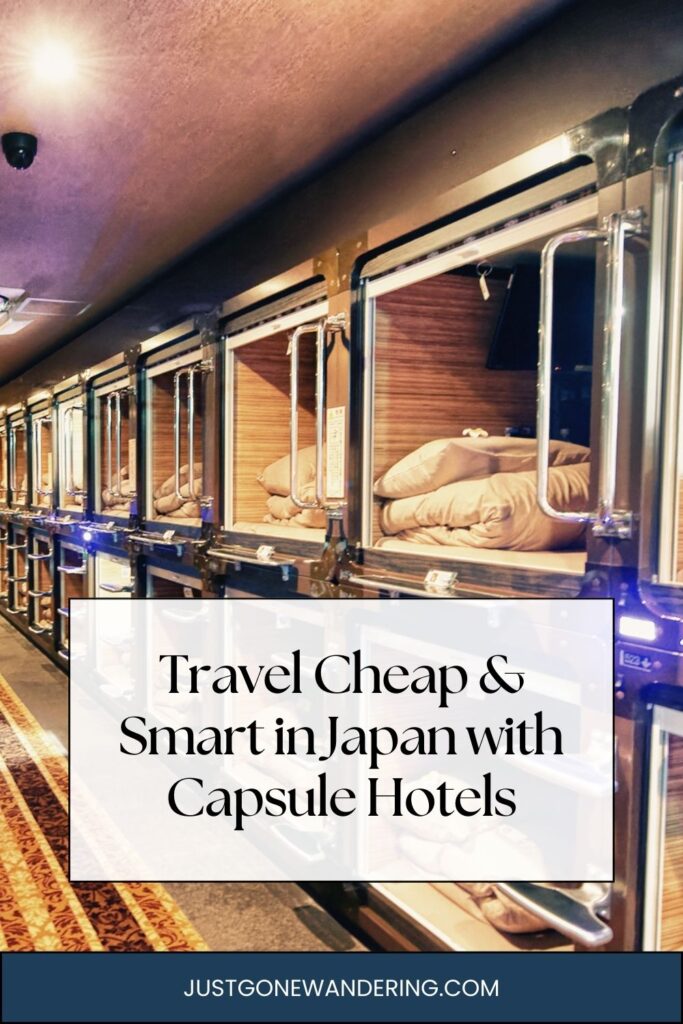
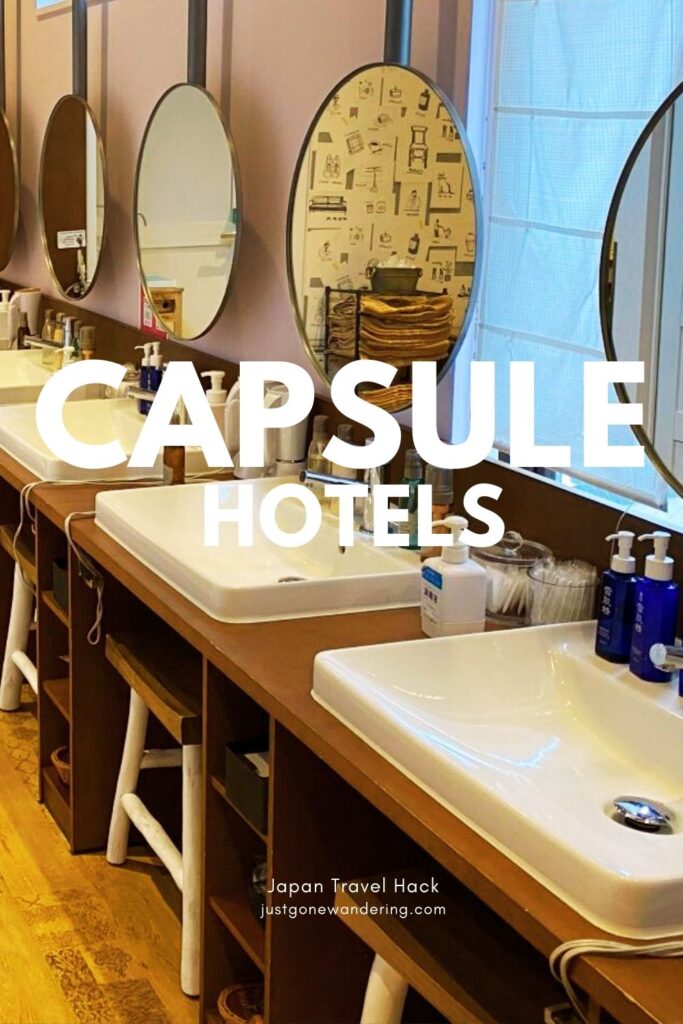
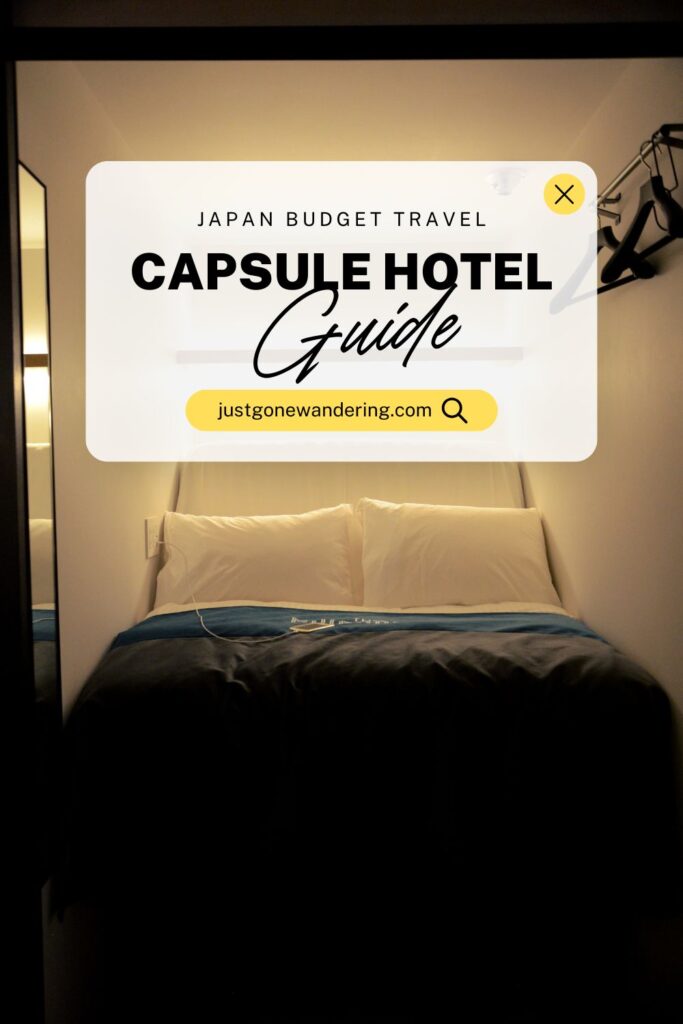
Shop

Japan Budget Travel Guide

Eki Stamp Printable Pages


